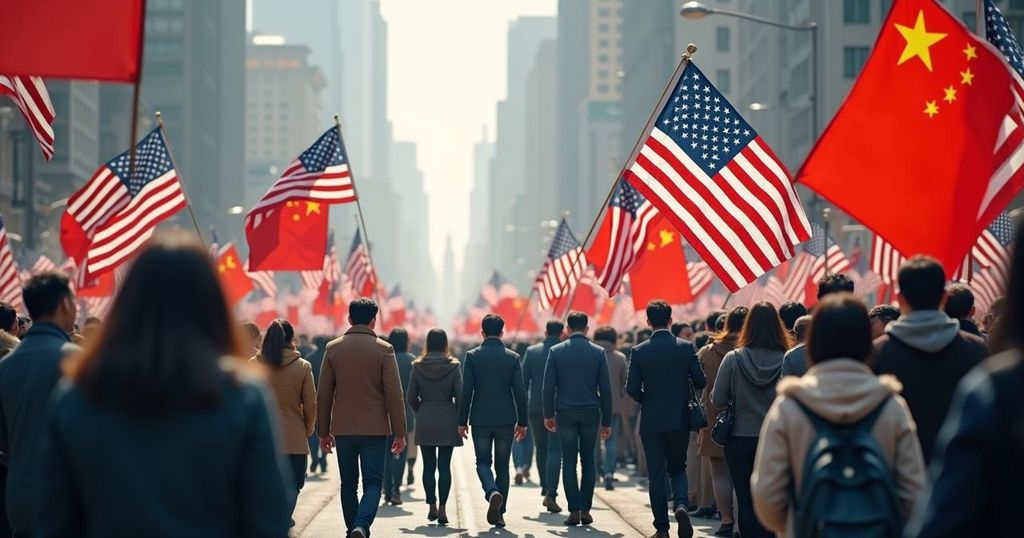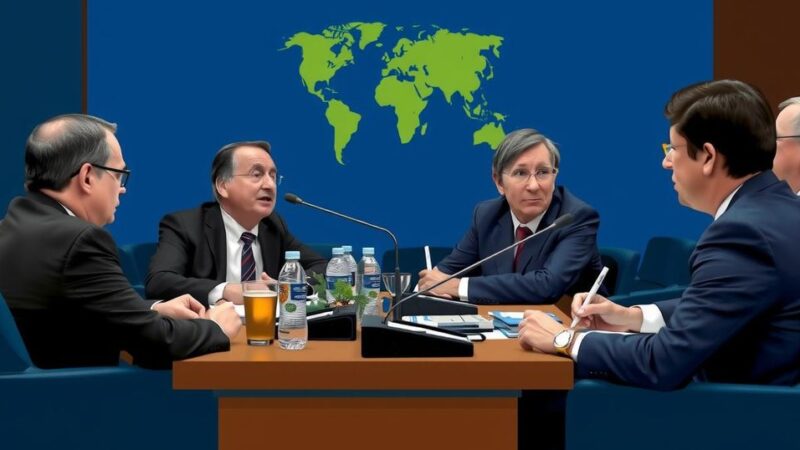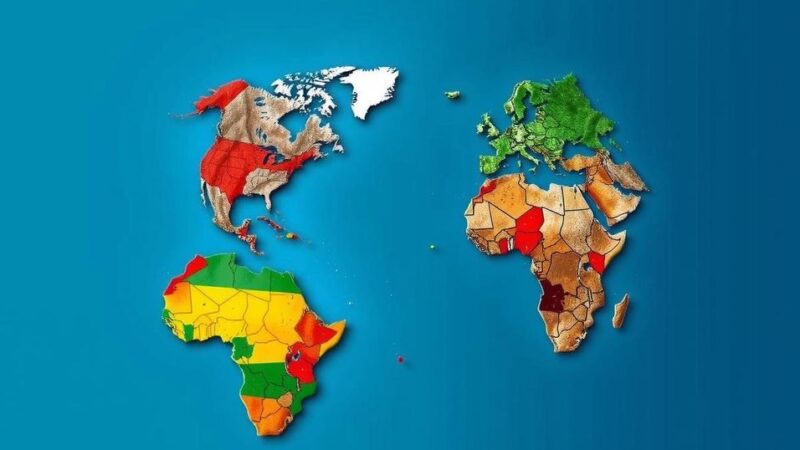Chinese citizens are keenly observing the U.S. election, expressing concerns about the implications of either candidate on Sino-U.S. relations, particularly regarding war, trade, and Taiwan. Many prefer Donald Trump due to his non-war rhetoric, while attitudes towards Kamala Harris are mixed, underscoring a desire for stability. The potential impact of trade tariffs and the longing for cultural exchange are also significant themes in the discourse surrounding the elections.
In China, citizens are closely monitoring the upcoming U.S. election, expressing both interest and anxiety regarding its potential implications on international relations and domestic matters. Concerns about possible conflict arise as they reflect on Sino-U.S. tensions involving Taiwan, trade, and geopolitical affairs. For example, Mr. Xiang, an avid park dancer, articulates fears about deteriorating Sino-U.S. relations and highlights the yearning for peace among the populace. Among the Chinese citizens interviewed, there exists a sentiment that Donald Trump may be preferable as a candidate because they perceive him as less inclined toward initiating military conflict compared to President Biden, who they believe supports continued warfare in regions like Ukraine. “Although he imposes economic sanctions on China, he does not wish to start or fight a war,” stated Mr. Meng, highlighting a common theme in their cautious hope for a Trump victory. Conversely, opinions about Kamala Harris appear less certain, as many Chinese citizens are unfamiliar with her policies, yet there is some belief that she could provide a steadier approach, particularly concerning Taiwan. An unnamed father expressed concern about possible conflict over Taiwan, stating, “I don’t want my son to go to the military,” illustrating the deep-seated fears regarding the potential ramifications of U.S. foreign policy. Trade relations remain a point of contention, especially with Trump’s past proposals of imposing substantial tariffs on Chinese goods, a move that generates apprehension among local businesses trying to navigate economic challenges. Mr. Xiang remarked, “I don’t think it will do any good to the US to impose tariffs on China,” reflecting the prevailing concern that such measures would disproportionately affect ordinary American consumers. Despite these geopolitical concerns, younger generations in China, who often engage with American culture through platforms like TikTok, express a desire for improved bilateral relations. While they celebrate their national identity, they remain optimistic about cultural exchanges, recognizing the importance of fostering better understanding between the two nations.
As the U.S. presidential election approaches, its implications resonate beyond American borders, particularly in China, where citizens reflect on the candidates’ potential impacts on Sino-U.S. relations. The political landscape is characterized by tension over Taiwan, trade issues, and military alliances, which amplify anxieties surrounding the election outcomes. Most Chinese citizens harbor fears of conflict and war, influenced heavily by media narratives and personal perspectives shaped by ongoing international strife. The perceptions of Trump and Biden reflect broader sentiments regarding U.S. foreign policy and its repercussions in China. Amid these geopolitical dynamics, younger generations express mixed feelings about nationalism and a longing for engagement with American culture.
In summary, the Chinese populace is closely observing the U.S. election, with prevailing concerns about potential military conflict and economic ramifications based on the candidates’ stances. While some voice preference for Donald Trump due to perceived non-belligerence, others express hope for Kamala Harris’s ability to maintain stability, particularly regarding Taiwan. The impact of trade policies remains a significant worry, as tariffs could adversely affect both nations. Ultimately, the desire for peace and cultural exchange underscores the complex relationship between China and the United States amidst electoral uncertainty.
Original Source: www.bbc.com






